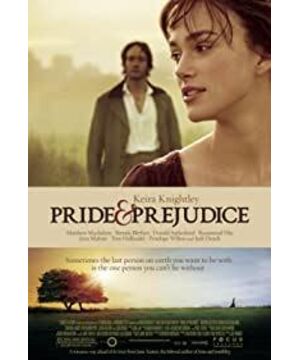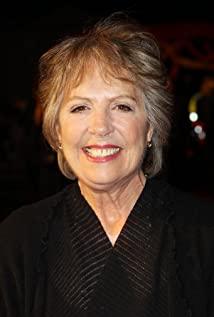See how smart British woman Austen writes about her glamour. As for her looks, there is evidence of the pursuit of three or more men; as for wit, there are countless conversations. In order to show her self-sufficient nerves, Austen set up two incredible marriage proposals for her, the most absurd, the most unexpected, the most sensational, and the fastest... We know that in these stories, marriage proposal is also the moment when love reaches its fullest. , the most emotionally explosive moment. So, Elizabeth leads us again and again to encounter a sudden rise of the mind, and then a downward spiral.
The two men who proposed marriage had richer material conditions than her. It would be wrong to think that there is no coercive force in this. Look at Elizabeth's best friend, who is quickly swept into the pastor's well-off life; and her consideration is exactly what we ordinary people are more or less calculating, this may be a normal choice in line with the average incidence rate . What's more, the second man's property is enough to allow ordinary people to live a happy life that is hard to resist.
Elizabeth's rejection of the second marriage proposal, and therefore Darcy's rejection, was a little confusing. She did not happily leave the first reason: I'm sorry, I don't love you. She first talked about the rumored reason why Darcy was unkind to others, and finally said that she was dissatisfied with him the first time she met. It seems that there is a contest between money and character here. It seems that Elizabeth is a woman with a "pure" texture who values personality over money? If so, what is the explanation for Elizabeth's fantasies when she saw Darcy Manor? ...any view of man/love that argues this woman with the character/property dichotomy and dialectics is inappropriate. Because that's what she saw in her eyes, giving the priest and Darcy a ridiculously self-righteous credence: the priest said: One of the reasons I married you was that I would inherit your property as compensation for it. Darcy said, your family is low-ranking, relatives are mediocre, but I still can't resist the love for you. ——The man who proposes is measured by a dichotomy, but the focus is different.
Elizabeth unfortunately jumped out of their logic. Austen is this type of novelist: using a limited number of characters in a limited space to detect the most superficial and most general events in reality, and therefore also of the widest significance. The first protagonist she sets always has the ability and function of this kind of detection; their love incident is a detection agency with a popular shell.
Elizabeth's swift dismissal of the first marriage proposal showed that this person was not beyond her comprehension. Exaggerated and vulgar, the priest was annoying but not a threat to her usual understanding and judgment. But the second time she met a taciturn, cautious opponent.
Don't forget that Elizabeth herself is a lively and outgoing person. Her observation of the outside world basically depends on "movement" - the movement of herself and the outside world, from the shape revealed by the movement to seek the texture of the object. The pastor's words and deeds are as ridiculous as they are, and they are easy to see through. Darcy is static, his limited movement seems counterintuitive, and at the same time there are evaluations from others, surrounding him from both sides. If Elizabeth has formed a "prejudice" against him, it is because these contradictions have not been persuaded by herself, and she is in a state of uncertainty about ununited phenomena and uncontrollable life. At this time Darcy's marriage proposal accelerated her surprise. And the reaction she threw out was all those clumps of threads that were tangled together. These coils of course include factors such as character and temperament, but it cannot be concluded that Elizabeth values character over money. People are not able to be divided into many attributes such as character, property, appearance, etc. like objects; choosing an object is not relying on these attributes of the other party to fight and decide the competition. Rather, love and marriage are ultimately to make people "at ease" in them. Elizabeth rejects Darcy's first marriage proposal because he has not been able to make her understand and "reassure" her.
There is a saying that seems to be: love is the best school for both men and women. This could not be more apt in Austen's novels. Elizabeth and Darcy improve their understanding of things and improve themselves in the process of emotional highs, conflicts, and ruptures. The highest concentration of emotion best promotes the growth of understanding the fastest. This is wonderful.
View more about Pride & Prejudice reviews











